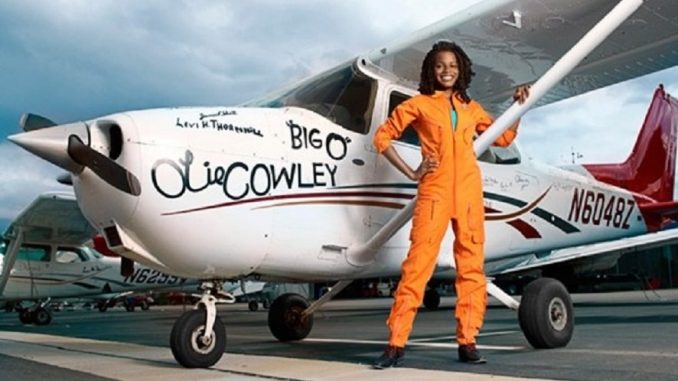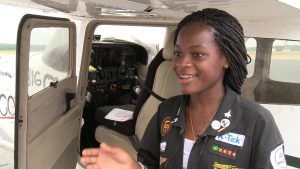
The new generation of black people all over the world is pushing the limits, going against the odds and most importantly proving that age is just a number. Through their actions and successes, they are sending a message to the world that the colour of their skin does bound them even through all the racism and issues that the Black community is facing and Kimberly Anyadike is a proof of such a testimony.
In 2009, Kimberly Anyadike, an African American teenager of Nigerian descent made history and became the first African American female and the youngest African American to fly an aeroplane across the United States.
Kimberly achieved this great height and set the record after just two years of pilot training through a special after-school program she enrolled in which is run by the Tomorrow’s Aeronautical Museum in Compton where she lives with her family.
While on the 13-day flight, Kimberly successfully flew from Compton to Virginia and back. In an interview with CNN, she described the experience as a dream come true and an amazing experience with only a light storm and bad weather as her challenge.
Kimberly fell in love with planes and flying at the age of 12 while learning about the African American pilots who flew in the World War. The lessons in history school inspired the then 12-year-old who had dreams of becoming a cardiovascular surgeon to achieve more and also become a certified pilot breaking records in America and for the black community at large.

During the 13 days and 7000 miles’ flight, Kimberly had with her Levi Thornhill who was at the time 87 years old and had trained her to fly a plane. For Kimberly Anyadike, having Levi Thornhill on the flight was an honour because of the role he played during World War II as a member of the Tuskegee Airmen. The Tuskegee Airmen are African American military pilots who served during World War II.
Kimberly enjoyed a lot of fame and recognition for her achievements encouraging young girls and black people, in general, to follow their dreams and never stop believing in them. During her flight, she made stops to speak with several young people and meet many of the Tuskegee Airmen who signed her plane.
BY ELIZABETH OFOSUAH JOHNSON
Source
